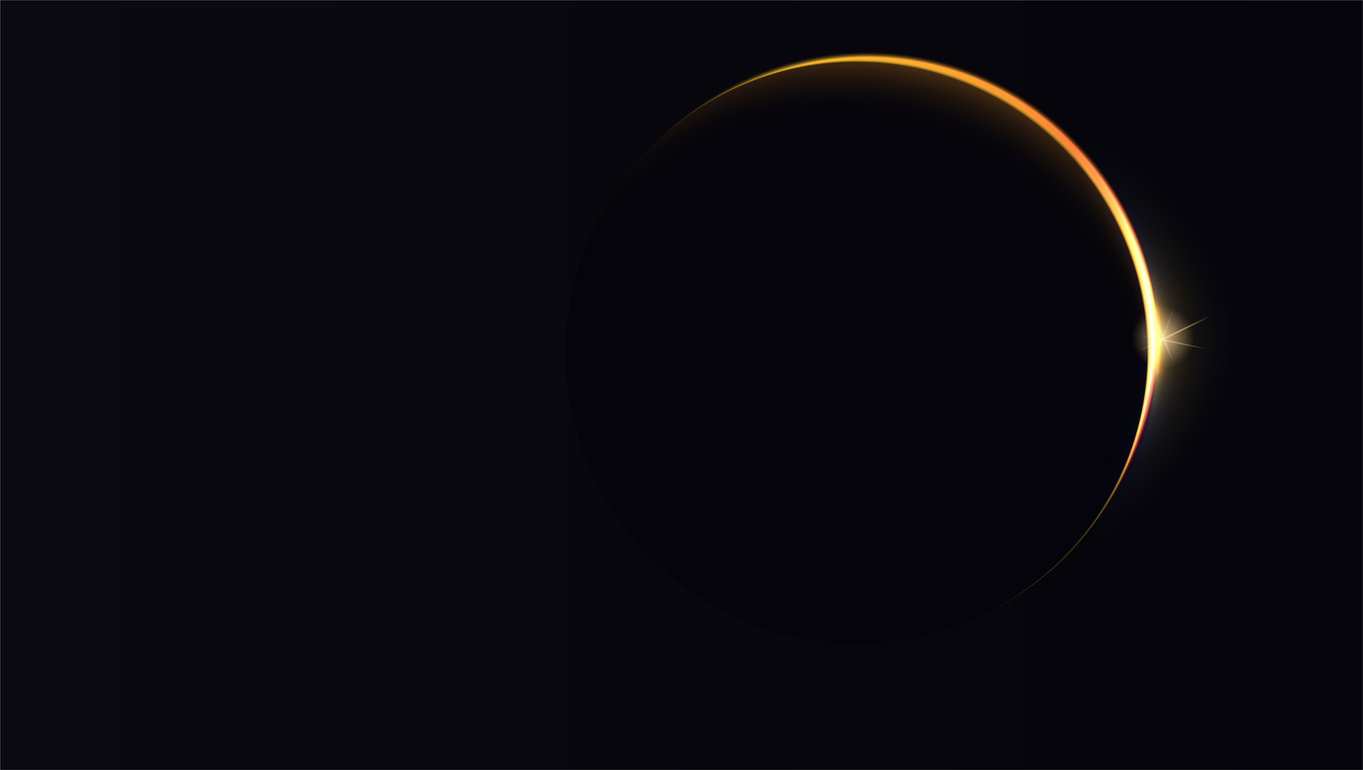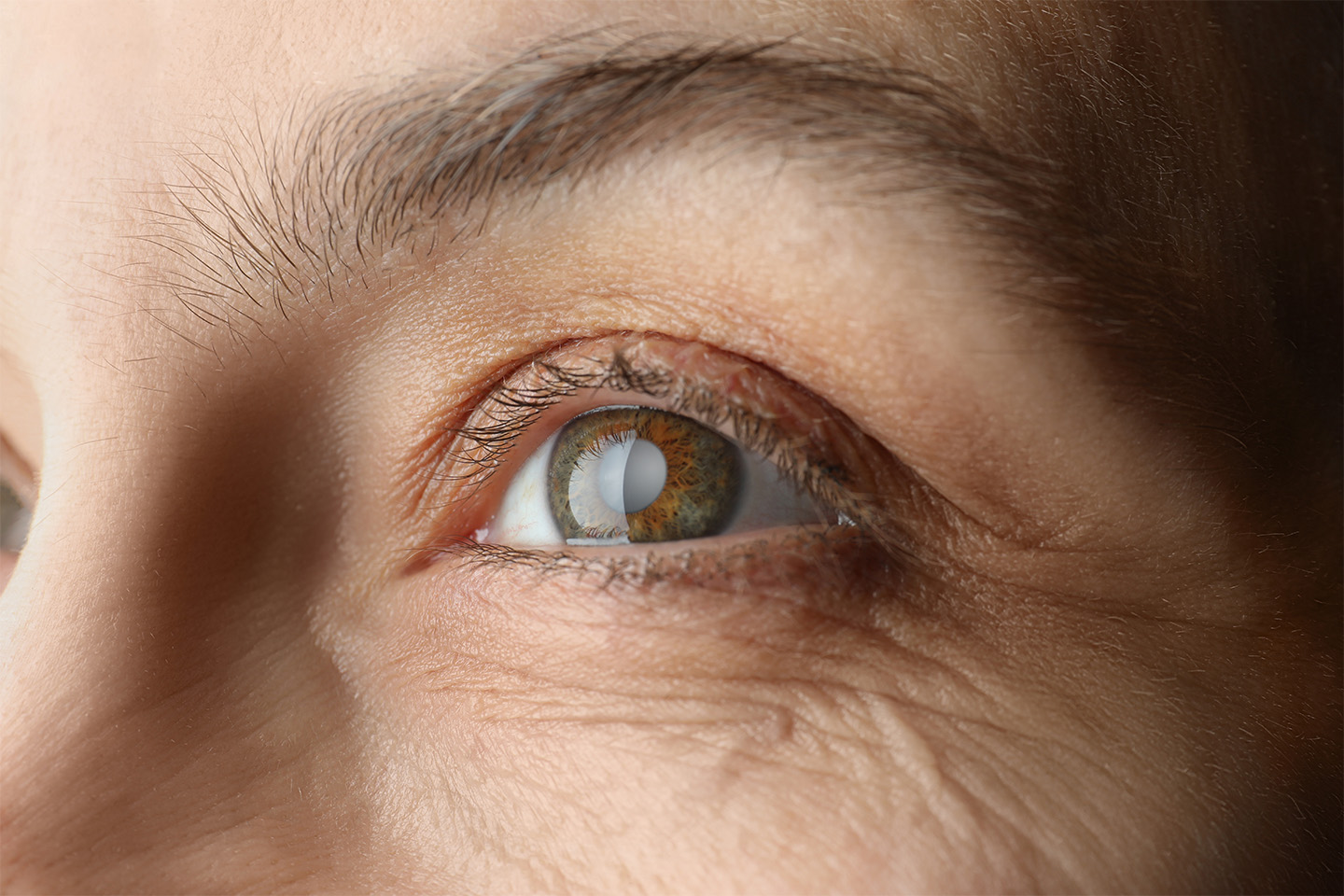Keep Your Eyes Safe During an Eclipse

Staring at the sun can severely damage your retinas. Here’s how to stay safe during the next solar eclipse.
Eclipses are breath-taking to observe, but they can pose serious risks to your vision. As such, it’s important to understand the different kinds of eclipses, the dangers they pose, and how to protect your eyes when they occur.
What’s the Difference Between a Solar and Lunar Eclipse?
A solar eclipse occurs when the moon passes between the sun and the earth. When this happens, the moon blocks the light of the sun, casting a shadow over the Earth. Solar eclipses are more common than you might think — total eclipses occur about once every 18 months, although most are only visible from certain points of the Earth’s surface.
There are several kinds of solar eclipses: a total solar eclipse, which occurs when the moon completely covers the sun; an annular eclipse, which occurs when the sun’s center is covered by the moon, but its edges are left uncovered; and a partial eclipse, which occurs when only a portion of the moon covers the sun.
The main difference between a solar eclipse and a lunar eclipse is that solar eclipses occur during the day and lunar eclipses take place at night. What’s more, a lunar eclipse will only occur when a full moon is directly opposite the sun, with the Earth sitting between them. These eclipses appear about two times per year, but can sometimes happen as often as five times in a single year.
In addition, a lunar eclipse is generally safe to watch without any special eye protection. A solar eclipse, on the other hand, is dangerous to view since it involves staring directly at the sun.
Damage from a Solar Eclipse
In general, it is very dangerous to look at a solar eclipse. The only exception is during a brief threshold during a total solar eclipse, when the sun is completely covered by the moon. However, partial and annular eclipses are never safe to look at, even briefly, unless you are equipped with special eye protection.
When you view the sun during a solar eclipse, you run the risk of burning your retina and damaging your vision. This is known as eclipse blindness, or solar retinopathy, and can sometimes lead to temporary or permanent vision damage. In the worst cases, it can cause permanent blindness.
Generally speaking, looking at the sun with your naked eyes can create an immediate dazzle or glare effect, much like looking at a bright light bulb. This might not be a sign of a retina damage, rather just short term effects of light exposure.
As there are no pain receptors in the retina, often there are no immediate or painful symptoms associated with eclipse blindness. However, after a 12 hour period, you may experience a loss of central vision, distorted vision, or altered colored vision. These symptoms could be a sign that you’ve damaged your retinas by exposing them to the sun.
How to Watch a Solar Eclipse Safely
The best way to view a solar eclipse is to wear special eclipse glasses. This relatively inexpensive eyewear has black lenses with a special coating that helps block the sun’s rays. But simply donning a pair of eclipse glasses is not enough to stay protected.
Experts at the American Astronomical Society recommend a few additional safety measures:
- Always inspect the solar filter before looking at the sun. If glasses are damaged, punctured, or scratched, they may be unable to protect your eyes.
- Children are more at risk of retina damage, so always ensure they are wearing their glasses correctly before allowing them to look at the sun.
- For those who wear normal glasses, be sure to keep them on and wear your solar glasses over them.
In addition to specialized glasses, you can also use a method called pinhole projection to safely view an eclipse. This involves passing sunlight through a small opening (i.e. a hole punched in a piece of cardboard or thick paper) to project an image of the sun onto a separate surface. This allows you to view the eclipse without staring directly at the sun.
Keep Your Eyes Protected
Although the next solar eclipse in North America is not expected to occur until 2024, solar eclipses happen regularly all around the world. If you come across one while traveling and are worried that you may damage your retinas, schedule an appointment with the experts at Kleiman Evangelista today. We can also help you protect your eyes from everyday sun damage and ensure that your vision remains as healthy as possible.
Reach out to our office for an appointment today.
Turn To The Top Eye Doctors In Texas
Check out one of our locations below for the best eye care near you:
[DISPLAY_ULTIMATE_SOCIAL_ICONS]








